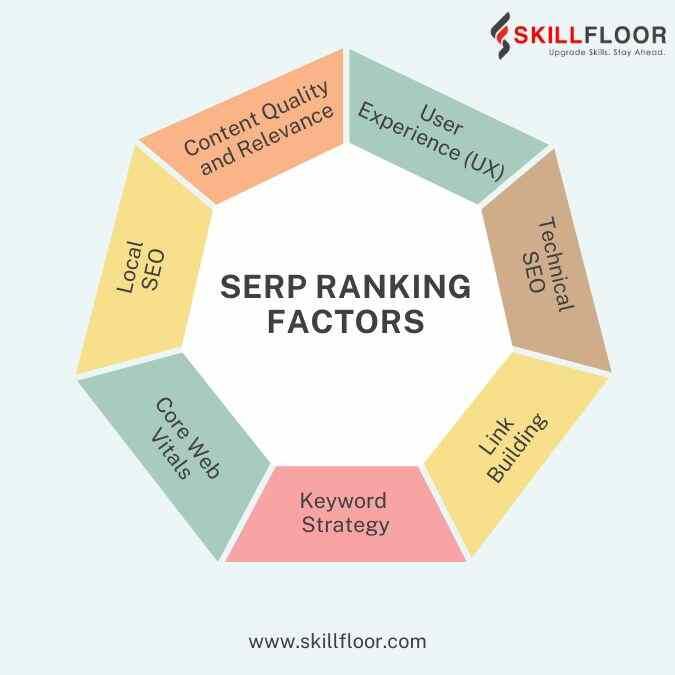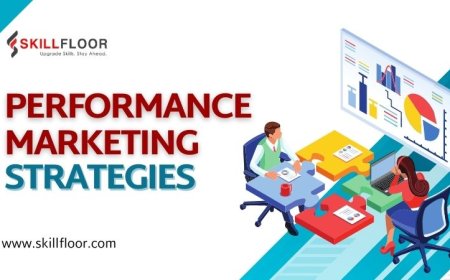Top SERP Ranking Factors You Need to Know for 2024
Discover the top SERP ranking factors for 2024 and stay ahead in the digital landscape. Essential insights for optimizing your online presence.

Understanding SERP Ranking Factors is crucial for improving your website’s visibility in 2024. Search engines consider a variety of elements to determine the ranking of pages. One significant factor is high-quality content that aligns closely with users' search intent. Pages with relevant, informative, and engaging content tend to perform well in search results. Additionally, mobile-friendliness has become increasingly important. With the growing number of users accessing the web via mobile devices, search engines prioritize websites that offer a seamless mobile experience. Integrating these SERP Ranking Factors into your digital marketing strategy can enhance your site's performance.
Another essential aspect of SERP Ranking Factors is the user experience on your website. This includes factors like page load speed and ease of navigation. Faster-loading pages are favored as they provide a better experience, reducing bounce rates and encouraging longer visitor engagement. Furthermore, backlinks from reputable sites contribute to a site's credibility and authority, influencing its ranking. A well-rounded digital marketing approach that includes optimizing technical aspects, enhancing content quality, and building a solid backlink profile can significantly impact your search engine visibility. Staying updated on these SERP Ranking Factors will help maintain and improve your site's position in search results in 2024.
1. Content Quality and Relevance
Content remains a cornerstone of SEO. Search engines prioritize content that is not only high-quality but also relevant to the user's query. In 2024, focusing on creating comprehensive, informative, and engaging content will be essential. Here are some aspects to consider:
-
Depth and Breadth: Cover topics thoroughly and provide in-depth insights. This means going beyond surface-level information to address the intricacies of the subject.
-
User Intent: Understand and address the intent behind search queries. Content should match what users are looking for, whether it's informational, navigational, or transactional.
-
Freshness: Regularly updating content can help maintain its relevance. Search engines favor content that is current and reflects the latest information and trends.
2. User Experience (UX)
User experience is becoming increasingly influential in determining SERP rankings. A positive UX can significantly impact how search engines evaluate your site. Key components include:
-
Page Speed: Fast-loading pages are critical. Search engines consider page speed as a ranking factor, and users expect pages to load quickly. Tools like Google’s PageSpeed Insights can help identify areas for improvement.
-
Mobile-Friendliness: With the majority of searches conducted on mobile devices, having a mobile-friendly site is imperative. Responsive design and mobile-optimized content are essential for providing a seamless experience.
-
Navigation and Accessibility: Easy navigation and accessible design contribute to a positive user experience. Ensure your site is easy to navigate and accessible to users with disabilities.
3. Technical SEO
Technical SEO forms the backbone of your website’s structure and how search engines crawl and index your pages. In 2024, maintaining a robust technical SEO foundation will be crucial. Focus on:
-
Crawlability and Indexability: Make sure search engines can easily crawl and index your site. Use tools like Google Search Console to monitor and resolve any issues.
-
Structured Data: Implementing structured data can help search engines understand your content better and provide rich snippets in search results, which can improve click-through rates.
-
HTTPS Security: Security is a priority for search engines. Having an HTTPS site is not just a trust signal for users but also a ranking factor.
4. Link Building
Links continue to be a vital factor in SEO. However, the focus has shifted towards quality over quantity. Effective link-building strategies in 2024 will emphasize:
-
High-Quality Backlinks: Seek backlinks from authoritative and relevant sites. These links are more valuable and can significantly impact your rankings.
-
Natural Link Acquisition: Encourage natural link building by creating shareable content. Avoid manipulative link-building practices that can lead to penalties.
-
Internal Linking: Develop a strong internal linking structure to distribute link equity across your site and improve navigation for both users and search engines.
5. Keyword Strategy
While keywords are not the sole focus of SEO as they once were, they still play a role in helping search engines understand your content. Modern keyword strategies should include:
-
Long-Tail Keywords: Target long-tail keywords that are more specific and less competitive. These can attract more targeted traffic and often have higher conversion rates.
-
Semantic Search: Optimize for semantic search by understanding the context and meaning behind user queries. This involves creating content that addresses related topics and questions.
-
Local Keywords: For businesses serving specific geographical areas, incorporating local keywords and phrases can improve visibility in local search results.
6. Core Web Vitals
Introduced as a ranking factor, Core Web Vitals is a set of metrics that assess a website’s user experience. These metrics focus on aspects like:
-
Loading (Largest Contentful Paint): Measures the time it takes for the main content to load. Aim for a loading time under 2.5 seconds.
-
Interactivity (First Input Delay): Evaluates the time it takes for a page to become interactive. Target a delay of less than 100 milliseconds.
-
Visual Stability (Cumulative Layout Shift): Looks at how much the layout shifts during loading. Maintain a CLS score of less than 0.1.
7. Local SEO
Local SEO remains crucial for businesses targeting customers in specific locations. In 2024, optimizing for local search involves:
-
Google My Business (GMB): Ensure your GMB listing is complete and accurate. Regularly update it with new information and engage with reviews.
-
Local Citations: Maintain consistent business information across local directories and websites. This helps improve your local search visibility.
-
Localized Content: Create content tailored to local audiences. This includes blog posts, landing pages, and localized keywords.

How does Content Quality Affect SERP Rankings?
Content quality plays a pivotal role in SERP rankings because search engines aim to deliver the most relevant and valuable information to users. High-quality content that is original, well-researched, and engaging tends to perform better in search results. Search engines use various metrics, such as time on page, bounce rate, and social shares, to gauge the quality of content. Additionally, content that is regularly updated and provides comprehensive coverage of a topic is likely to rank higher. Therefore, investing in creating high-quality content is essential for achieving and maintaining good SERP rankings.
Handling the variety of SERP ranking criteria calls for a comprehensive strategy. You can improve your site's visibility and performance in search results by concentrating on user experience, technical SEO, E-A-T, link building, and high-quality content. For your SEO strategy to be successful in 2024 and beyond, you will need to stay current with these factors and make constant improvements.





























































